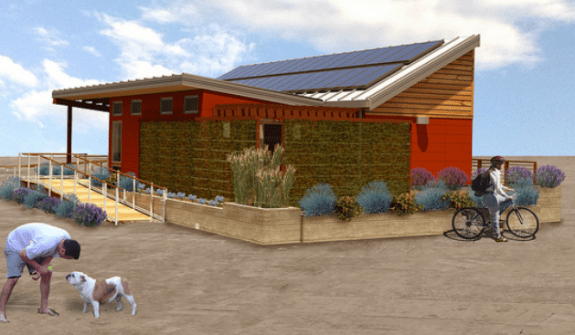
The competition requires students to design and construct solar-powered houses that are cost efficient, energy efficient and aesthetically appealing, according to news-journalonline. Moreover, Team Daytona has to make sure the home can be safely shipped 1,900 miles from Daytona to Denver.
The current one-inch to one-foot scale model will be translated into a net-zero modular home of 950 square feet, with an additional 500 square feet of outdoor living space, as the team, lead by Jenna Austin Beckwith of ERAU, competes for $2 million in prizes.
Largely influenced by author Ernest Hemingway’s iconic Key West residence, the $400,000 bungalow also draws on 1920s Florida architecture. While the team will have nearly two years to design, build and test the home, Beckwith has long had an interest in renewable energy, and spent two years planning and drafting a project proposal.
She envisions the project as a means to educate the public on the importance and viability of solar technology as a means to encourage consumers to demand this type of technology from builders, as MHProNews understands.
The only community college entered in the 2017 competition, DSC students are focusing on sustainability for the BEACH (Building Efficient, Affordable, and Comfortable Homes) House with an open concept approach geared towards empty-nesters. Centered by a galley kitchen that leads to an east-side dining/living room, two bedrooms and a bath occupy the west end of the house.
Stephanie Roberts, a DSC interior design student and a co-leader for DSC’s side of the team, said, “We wanted it to be charming and have character and not necessarily look streamlined and modern, even though it has modern comforts and technologies in it.”
On the engineering side, ERAU students have designed the modular home with high-tech photovoltaic solar energy panels and a water consumption system fed by water cachement. In addition to ensuring code compliance, the students are making the house earthquake and hurricane sustainable.
Beckwith said Team Daytona is set to break ground on construction of the home in Sept., and intends for it to be 75 percent complete by the end of 2016. In January the team will test the engineering systems before installing them in the home, and then break the house down into its individual modules, and then reassemble the home to make sure all systems are go. ##
(Image credit:mothernewsnetwork Phoenix House–Indiana University and Louisville (KY) University students partnership in Solar Decathlon, 2015)


























